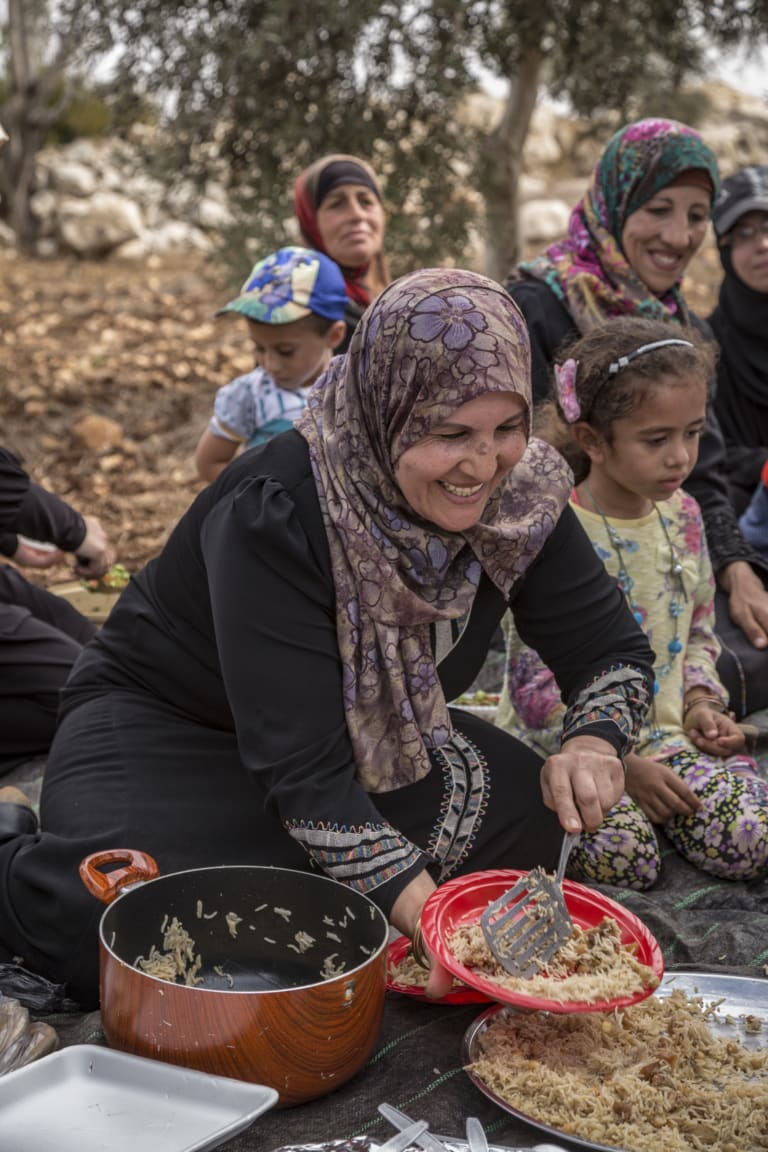
In Talfit, south of Jenin, Mohammad Weshahi is harvesting his olives from 200 dunums (20 hectares) of land, where he also keeps a flock of 100 sheep which bring in a modest extra income. He too has had to remain alert to the ever-present threat from settlers or the military, though he counts himself fortunate that his farm lies further from settlements than many others.
“One of the biggest challenges we currently face is the settlers’ attacks on farmers – including the destruction of trees, theft of produce, and other such assaults,” he explains.
But he, like all olive farmers in the West Bank, remains focused on what harvest there is and making the most of what it yields. Mohammad and his wife have 5 children and his mother lives with them too. Everyone helps with the olive picking. His family has always cultivated olives and Mohammad learned the craft from working alongside his father on the farm.
“We see the olive trees as our other children,” he says. “The olive season is our main source of livelihood.”
“This year’s harvest (2025) is poor – maybe as low as 10% of what we might normally expect in a good season. It is partly because we only had about 50 millimeters of rain last winter, which is disastrous for olive trees as they are so dependent on rainfall.”
Mohammad has been a member of the Palestine Fair Trade Association for 8 years ensuring an export market and Fairtrade premium for his olive oil.
“Thanks to Fairtrade and the Canaan company, our products are sold in Europe and Britain, which is a source of great pride for us.”
“As farmers, selling our olive oil allows us to cover living expenses and our children’s education. We also benefit from the Fairtrade premiums, which provide us with hand tools that help us during the olive harvest season.”
This year, because of security issues, the certifier for Mohammad’s olive oil was forced to suspend operations – putting at risk the additional income the farmers earn from certified extra virgin olive oil.
It has been very gratifying to see consumers and retailers alike in the UK continue to support the same oil, even without the certification mark, until a new certifier comes on board in the New Year.
“This continued support for our products helps us preserve the olive trees and our land,” says Mohammad.
You can watch a short film of Mohammad Weshahi on this farm here.



